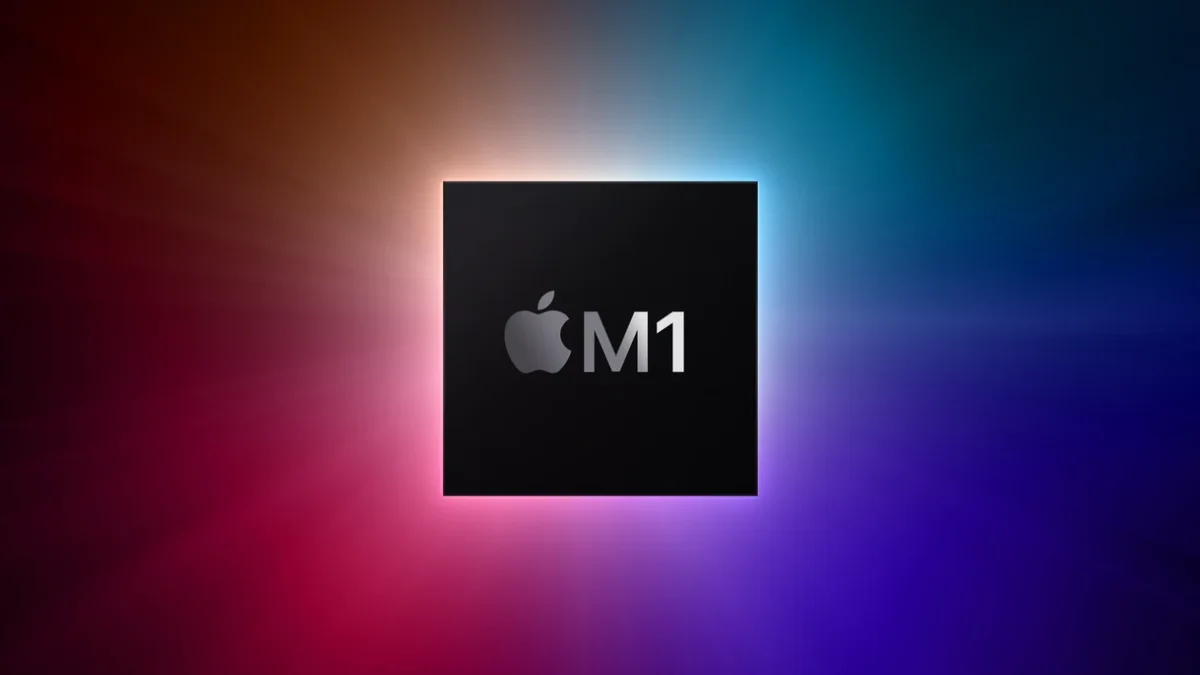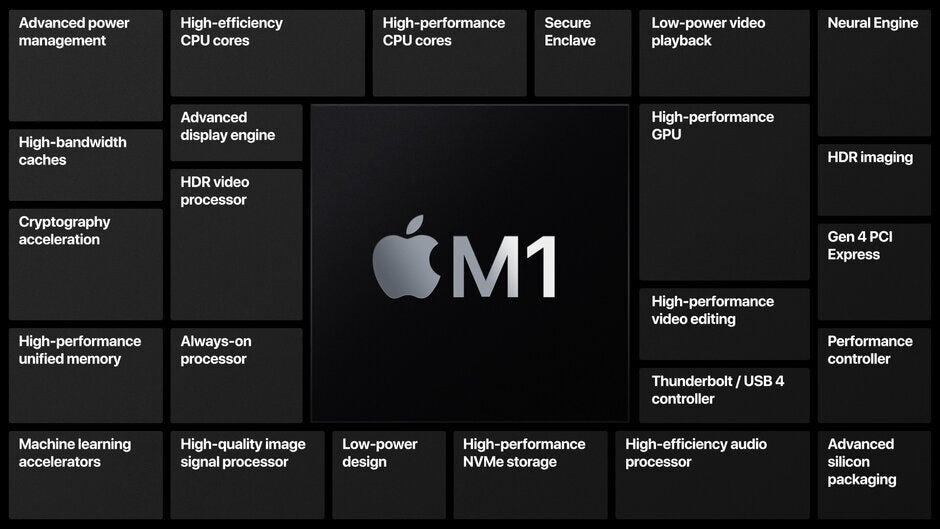Apple reportedly tests new ARM chips with up to 32 performance cores

Last month Apple introduced its ARM based M1 SoC. Built on the 5nm process node, the M1 sports 16 billion transistors compared to the 11.8 billion used on the A14 Bionic, the chip used on all four of Apple's 5G iPhone 12 series handsets. The M1's CPU and GPU both have eight cores and are said to deliver twice the performance as currently used laptop chips. The M1 was unveiled on a new entry-level MacBook Pro laptop, a revamped Mac mini desktop and the MacBook Air line. The M1 replaces Intel processors.
Apple plans on using more ambitious "Apple Silicon" for its Macs in the years ahead
Apple isn't done designing chips to replace Intel. According to Bloomberg, this coming spring and fall Apple will introduce new components for upgraded MacBook Pro models, entry-level and high-end iMac desktop models, and a new Mac Pro workstation. The upcoming chips, according to analysts, will be more powerful than originally expected from Apple for 2021; by 2022, Apple expects to have replaced Intel with its own chips on all of its Macs. Despite last month's announcement, higher-end 13-inch MacBook Pro models are available for the moment with Intel CPUs. Compared with the $1,299 and $1,499 pricing on the lower end M1 powered units, the 13-inch Intel-powered MacBook Pro models (with four Thunderbolt ports instead of two on the lower-priced machines) will cost you $1,799 or $1,999.

Future Apple Silicon will be more ambitious according to a new report
M1 versions of the Mac Mini are priced at $699 and $899 while Intel CPUs are found inside pricier units tagged at $1,099 and up. To reiterate, Apple is aiming to replace Intel on all Macs by 2022. While Apple could decide to release less ambitious chips next year instead, those familiar with Apple's plans say that the company's road map still points to ambitious chip design from Cupertino. And ambitious it is. The M1 was built around a mobile design with four high performance cores to cover complex tasks. Four efficiency cores handle general housekeeping chores. For the next MacBook Pro and iMac models, Apple is believed to be working on a chip with 16 high performance cores and four efficiency cores. Insiders say that while such a chip is being developed, Apple might have to go with a version of the component with eight or twelve high performance cores. That's due to issues that might surface during the development of the new chips.
For high-end desktop computers planned for later next year and a half sized Mac Pro scheduled for 2022, Apple is testing a chip with as many as 32 high performance cores. Current high-end Apple laptops feature Intel processors with up to eight high performance cores and a high-end iMac Pro is available with as many as 18 such cores. The most expensive Mac Pro desktop model comes with a chip carrying 28 of the most powerful cores. Apple is also testing its own Graphics Engine for mid-and high-end devices that could come with 16 or 32 cores. The M1 sports seven or eight such cores. And speaking of the M1, Bloomberg's report notes that the chip is a variation of one that is being planned for a new iPad Pro tablet to be delivered next year.
Continuing with future graphics chips, Apple is also believed to be testing higher-end components that will feature 64 to as many as 128 cores for its most expensive computers. These will be much faster than the Graphics components produced by AMD and NVIDIA that are used on Apple's higher-end Intel powered machines. Speaking of NVIDIA, the latter is in the process of trying to acquire ARM Holdings whose chip architecture is used on Apple's A-line chipsets used on the iPhone.
Apple designs its chips and has them manufactured by TSMC (Taiwan Semiconductor Manufacturing Company), the world's largest independent foundry. Apple is its biggest customer.
Follow us on Google News











Things that are NOT allowed:
To help keep our community safe and free from spam, we apply temporary limits to newly created accounts: